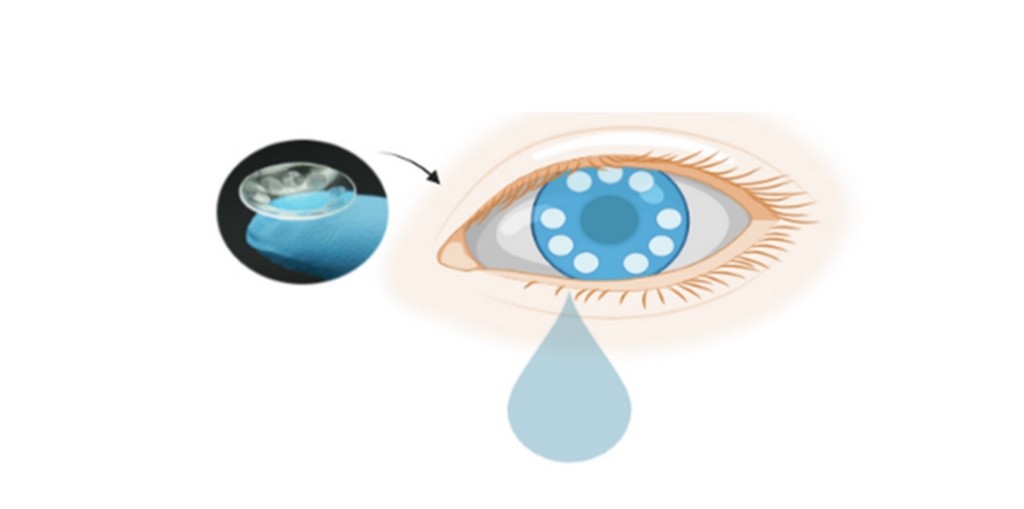
Smart contact lenses have been developed by scientists that diagnose cancer by detecting tumor chemicals found in tears during the early stages of the disease.
It captures the signals of transporters called ‘exosomes,’ which are a little like secret messengers within our bodies.
Found within cells, they end up in various fluids and have a wealth of proteins on their surfaces which can be used as hallmarks of cancer, viral infections, or injury.
Minimizing delays to treatment improves survival rates in cancer patients. Every month can raise risk of death by around 10%. These contact lenses offer a potential platform for cancer pre-screening and or supportive diagnostics tool that is easy, rapid, sensitive, cost-effective and non-invasive.
“The lens can detect exosomes in various solutions from various cell lines—and human tears,” said Project leader Professor Ali Khademhosseini. “It can differentiate expression of surface proteins as cancer biomarkers.”
Exosomes were once thought to be the dumping grounds for unwanted materials, but it’s now known they carry different biomolecules between cells. They can also strongly influence tumor regulation, progression and spread.
“They are a rich source of markers which can be targeted for several biomedical applications,” said Dr. Khademhosseini. “The methodology our team has developed greatly facilitates our ability to tap into this source.”
Previous attempts to harness their importance have been hampered by problems in isolating enough to provide sufficient information. Current methods involve tedious, complicated, time-consuming and costly equipment, and take at least ten hours to complete an analysis.
Khademhosseini’s U.S. team’s simple technique eliminates these issues. Tears are also a better and cleaner source of exosomes than other bodily fluids.
The eyeglass is fitted with microchambers bound to antibodies that the exosomes stick to. In experiments, it was successfully tested on exosomes secreted into lab liquids from ten different tissue and cancer cell lines—and tears from ten human volunteers.
The exosomes are scanned using a pair of antibodies on gold nanoparticles so potential signs of cancer can be visualized.
SIMILAR: Protein Destroys ‘Hard to Treat’ Cancers, Could Become ‘One Size Fits All’ Pill
Further analysis showed the lens identified exosomes in solutions from three cell lines with varying surface markers and using different combinations of antibodies.
“The resultant patterns of detection and non-detection of exosomes from the three different cell lines were as expected,” he said. “It validated its ability to accurately capture and detect exosomes with different surface markers.”
SHARE This Eye-Opening Innovation…



















